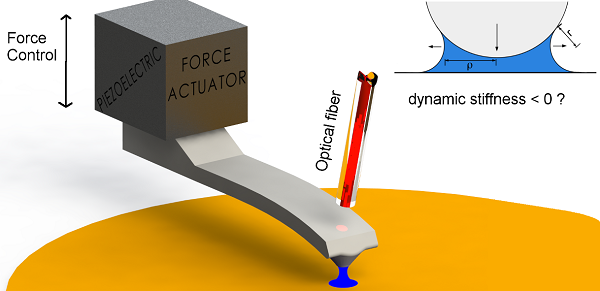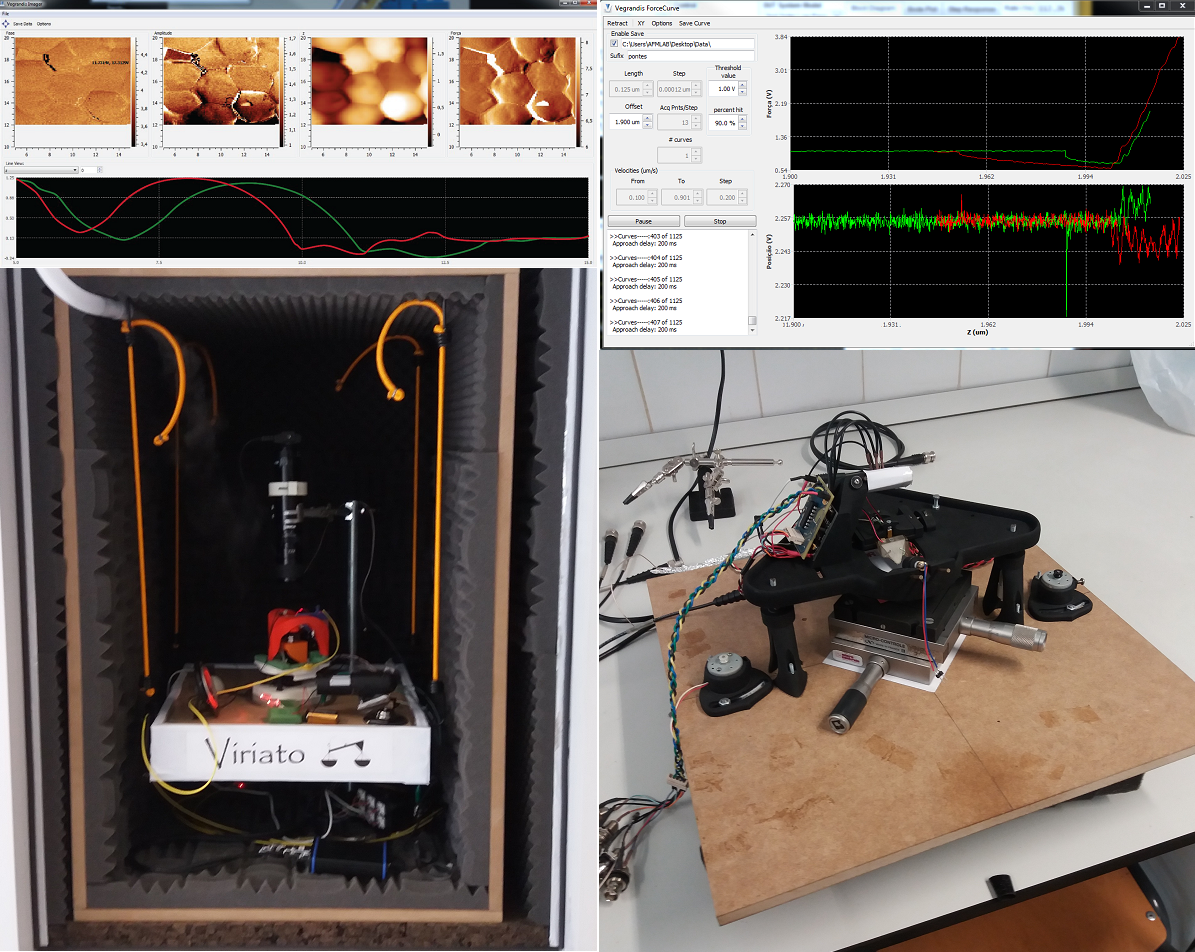We have three main areas of research:
-
Study of biological interactions at the nanoscale
Supported in the BioISI framework, as well as in a FCT-funded research project, we have dedicated ourselves to study the mechanisms behind many biological phenomena at the nanoscale. Particularly, we are interested in studying the effects of stress and mutations on the mechanical properties of different biological systems, including pollen tubes, yeast or human cells, among others. We are also involved in studying specific protein-protein interactions, as well as studying the aggregation mechanisms of different proteins.

AFM images of an Arabidopsis Thaliana pollen tube (left, in collaboration with PFG group of BioISI) and Aβ peptides (right, in collaboration with FunGP group of BioISI).
-
Study of physical phenomena nanoscale
We are interested in understanding capillary interactions, dynamics and nucleation at the nanoscale. Using the Force Feedback methodology we are also studying nanoscale friction, nanofluidics and electromagnetic properties of surfaces.

Sketch of the experimental setup to study capillary bridges.
-
Instrumentation and development of custom-made AFMs
We also focus on the design of new, custom-made instruments, capable of performing experiments the conventional AFM cannot. In this sense, we continuously develop the technique of Force Feedback Microscopy and its adaptation to conventional instruments. We have also focused in developing low-cost instruments, as well as AFM operation software.

Some of the instrumentation design in the lab: top, snapshots of the custom-made software Vegrandis; bottom left, FFM designed for the study of soft matter at the nanoscale, in its enclosure box; bottom right, low cost AFM under development in the AFMRT lab.



